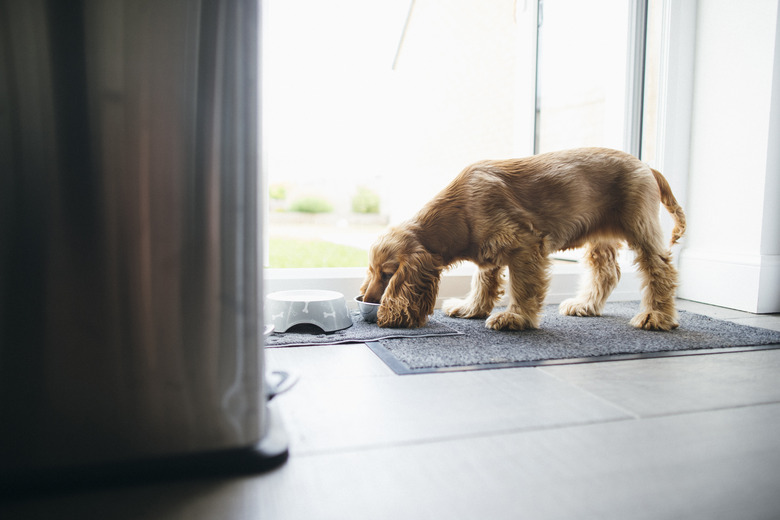What To Do If A Dog Eats Ibuprofen
You have a pounding headache and just set down an open bottle of ibuprofen pills on the coffee table for a few seconds while you got a glass of water. But your dog found it before you returned and happily swallowed half of the pills, just as he does for nearly anything meant for human consumption that's unattended. Now what?
Pain pills and pets
Pain pills and pets
Unlike humans, dogs shouldn't take ibuprofen, which includes such name brands as Advil and Motrin. Nor should they be given other non-steroidal anti-inflammatory medicines (NSAIDs), such as aspirin and naproxen. Once ingested, ibuprofen blocks enzymes that cause inflammation as well as enzymes used for digestion and kidney function.
Unlike in humans, where the the liver removes the drug from the body relatively quickly, dogs don't eliminate it nearly as fast. The severity of the toxicity depends on a number of factors, including how much ibuprofen has been ingested, the size of the dog, and a dog's overall health. Older dogs and puppies, and ones with heart, liver, kidney, and gastrointestinal diseases, are likely to have more severe problems if they eat ibuprofen.
Signs of ibuprofen poisoning
Signs of ibuprofen poisoning
If you think your dog ate ibuprofen, look for symptoms of an upset stomach since the drug irritates the gastrointestinal system and can cause bleeding or ulcers. He may vomit, and the vomit could be streaked with blood. Other signs include decreased appetite, diarrhea, and stools that are dark and tarry or bloody.
Additional symptoms can include your dog drinking more water or less, leading to increased or decreased urination. Ibuprofen can also cause liver and kidney problems. As the liver gets involved, her skin and mucous membranes might become pale or take on a yellowish cast. More severe symptoms include stupor, difficulty walking, seizures, and going into a coma.
Getting help
Getting help
If you suspect your dog has eaten just one pill, call your vet right away for advice. The vet may ask you to come in or just monitor for symptoms. But if your dog has consumed part of a bottle of ibuprofen, call Animal Poison Control immediately. The number is (888) 426-4435. A trained expert will tell you what to do next. A consultation fee may be charged.
You can also take your dog to an emergency vet clinic, which can induce vomiting and administer activated charcoal to combat poisoning. Lab tests will be performed to find out if there is internal bleeding or damage to organs such as the liver or kidneys. X-rays might be taken to check for perforations in the digestive tract. If your dog has lost a lot of blood, a transfusion might be required. Your dog will need to be monitored for one to two weeks after eating ibuprofen to make sure his body is healing and there are no new signs of infection
Safer choices
Safer choices
Just as with children, pet owners must keep any drugs out of reach since it can only take a few seconds for your curious dog to eat a medication that could cause permanent damage.
If your dog appears to be in pain, always consult your vet to find out what medications are safe. Some pain medications prescribed to dogs include carprofen, deracoxib, firocoxib, and meloxicam.
Always check with your veterinarian before changing your pet's diet, medication, or physical activity routines. This information is not a substitute for a vet's opinion.
